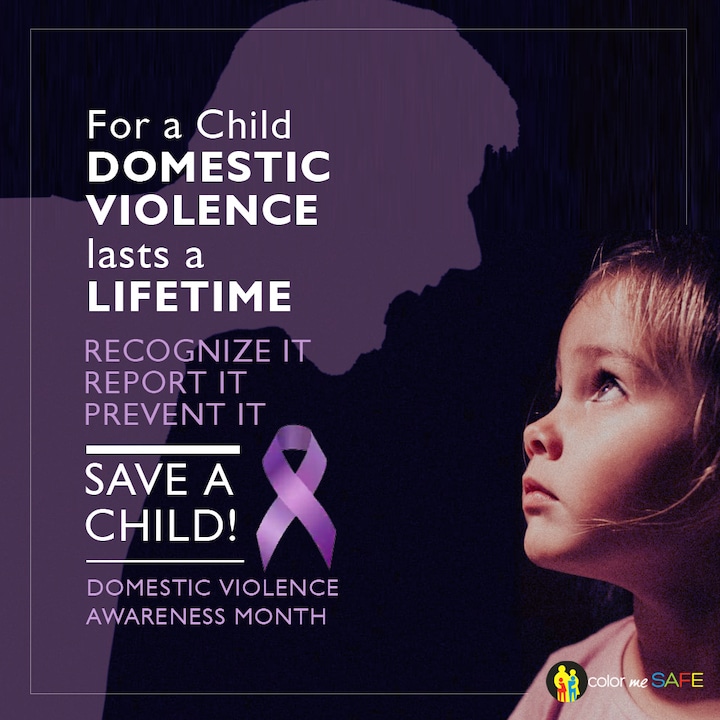October is also Domestic/Intimate Partner Violence Awareness month. According to the CDC, from 2010 to 2012, “nationally, 7.1% of women (an estimated 8,627,000) were victims of rape, physical violence and/or stalking by an intimate partner in their lifetime and first experienced these or other forms of violence by that partner before the age of 18.
About 1 in 27 men in the United States (3.7%; an estimated 4,282,000) was a victim of being made to penetrate someone else, physical violence and/or stalking by an intimate partner in his lifetime and first experience these or other forms of violence before the age of 18.
Though these numbers are astounding and sobering; it illustrates that many adults have experienced, seen or been directly effected by Domestic/Intimate Partner Violence.
Children depend on those around them to protect them from harm; however, if the environment around them is violent/chaotic they are left to interpret how best to protect/defend themselves. They tend to remain in a heightened state of Fight/Flight/Freeze. This can manifest itself into many struggles for these children and cause long-term, adverse affects.
Research has shown that these children struggle with forming friendships, trusting other adults such as teachers and educational staff, counselors, etc. Because the violence often spreads to the child, the child could develop messages that violence = love.
It is important for caring adults in the child’s life to show that love is not painful and remind the child that they deserve to be safe. LET’S BE THAT SAFE PLACE!
We would like to say THANK YOU to our community partners, CHETNA in DFW and Daya Houston and all of the other Domestic Violence programs for their tireless advocacy for those who experience domestic/intimate partner violence. Let’s fight domestic violence together, as a community!
If you or someone you know needs help related to Domestic/Intimate Partner Violence, contact the National Domestic Violence Hotline at 1-800-799-7233. The advocates who answer the hotline can assist in finding local services to help you.

